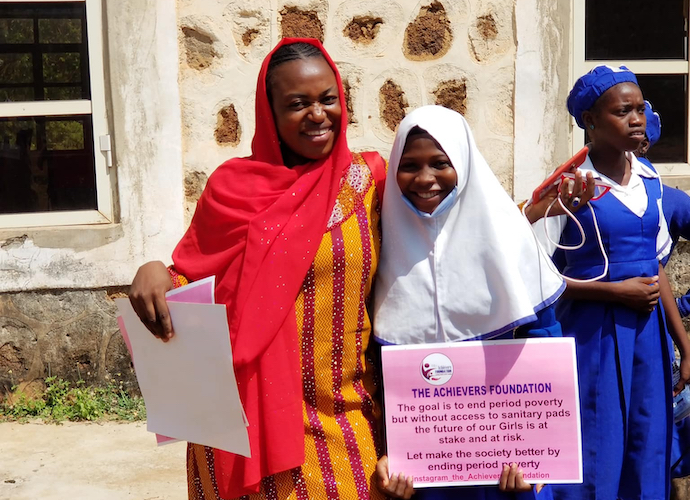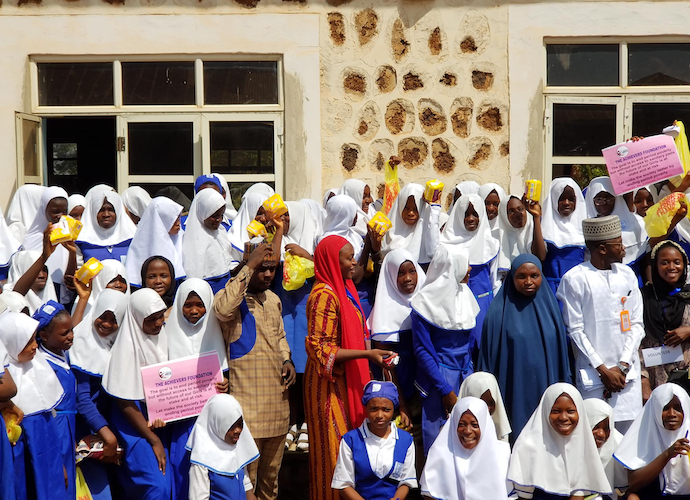The Platform
MAKE YOUR VOICES HEARD!
How One Nigerian Woman is Waging a War against Period Poverty
03.10.2023
Students that Mariam Adeola Salihu and her team lectured on menstrual hygiene. (Mariam Adeola Salihu)
Mohammed Taoheed is a freelance journalist based in northwest Nigeria where he studies Law at the Usmanu Danfodiyyo University, Sokoto State. Taoheed is interested in development, conflict, politics, and social justice.

